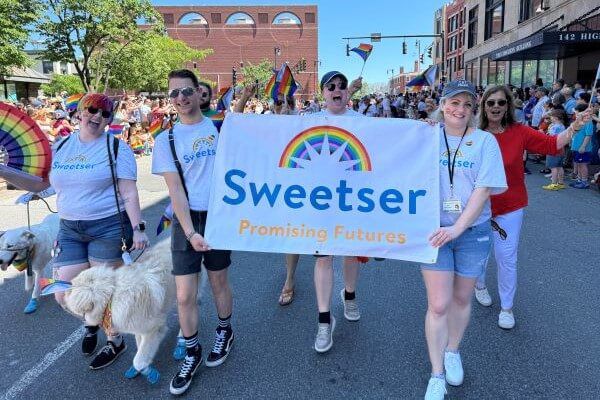Mental Health Moment: Pride gives focus to LGBTQ+ support
 |
|
Courtesy Photo
|
June is Pride Month. A great opportunity to reflect on the progress made for the LGBTQ+ community and the road ahead for a more inclusive and accepting society. Pride events can offer an important sense of community and support for those struggling with self-expression of their sexuality and gender identity.
Sadly, when it comes to mental health statistics though, the data points aren’t equal.
Nationally, 41% of LGBTQ+ young people seriously considered attempting suicide in the past year, a number that goes even higher for those of certain subsets like transgender and youth of color. Compare that to Maine, where the percentage of all students who seriously considered suicide was around 19%. Both numbers are unacceptable, but why is it so much higher for one group of youth over another?
What happens in a home environment plays a big role. Support and acceptance from parents or guardians matters greatly. If you have to shield your true authentic self from the individuals in your life that are supposed to care about you the most, it makes you shrink your personality and whole sense of self into a shell of who you really are. This can eat away at you, be emotionally draining, and deteriorate your mental health. The worry for some centers on not just on a lack of acceptance, but physical safety issues or even situations of parental abandonment out of the home for disclosing true identities.
Another risk factor for LGBTQ+ youth suicide is consistent negative treatment by others, usually manifesting through bullying online or at school. How youth are treated while they try and get an education, impacts their ability to accept themselves, feel safe, and develop a successful path into adulthood.
We also have government officials passing laws, making it harder for youth to feel comfortable in their own skin and the political rhetoric of late has been to demean and question rather than to support and uplift. Youth are listening. They see how they are talked about. How could they not feel bad about themselves when they hear adults, those in positions of power even, treating them negatively? Take it from me, it makes you feel less than, like a second-class citizen. It’s not a good feeling.
Growing up I felt isolated and different. I felt like there weren’t many places to turn to when questioning my own sense of self. The constant questions about my sexuality by my peer group before I even knew myself didn’t help. There were very difficult challenges that I struggled with, and I had it better than most. Luckily, I found my own path towards hope and happiness, but so many can’t do it alone. Help is out there. Support is available now. You don’t have to go through this journey alone.
The more parents and guardians love their children unconditionally and use words that signal as much, the less likely LGBTQ+ youth would take a darker path. The more community leaders pass Pride proclamations and laws to protect rather than to demonize, the less likely LGBTQ+ youth would feel less than. The more teachers and educational staff intervene and help prevent bullying, the less likely LGBTQ+ youth would feel school isn’t a safe place for self-expression. The greater the access to mental health services, the less likely LGBTQ+ youth would feel like there is no one there for them.
Having resources within the community and for the community reduces barriers to accessing the kind of help is needed. The Trevor Project is a literal lifeline for so many. Their support resources are 24/7/365, nationwide, 100% free and confidential. Youth can be connected to counselor who is understanding of LGBTQ+ issues and won’t judge you. Messages are anonymous. Youth can reach out to a live person on the phone at 1-866-488-7386, text ‘START’ to 678-678, or begin a live online chat at https://chat.trvr.org .
Ultimately, it does get better and can be better for LGBTQ+ youth, but only if we are intentional with our words and actions not just during Pride Month, but all year long.
Justin Chenette is the Senior Director of Public Relations & Advancement at Sweetser, which provides evidence-based treatment, support and hope through a statewide network of community-based mental health, recovery, and educational services. Learn more at www.Sweetser.org.

